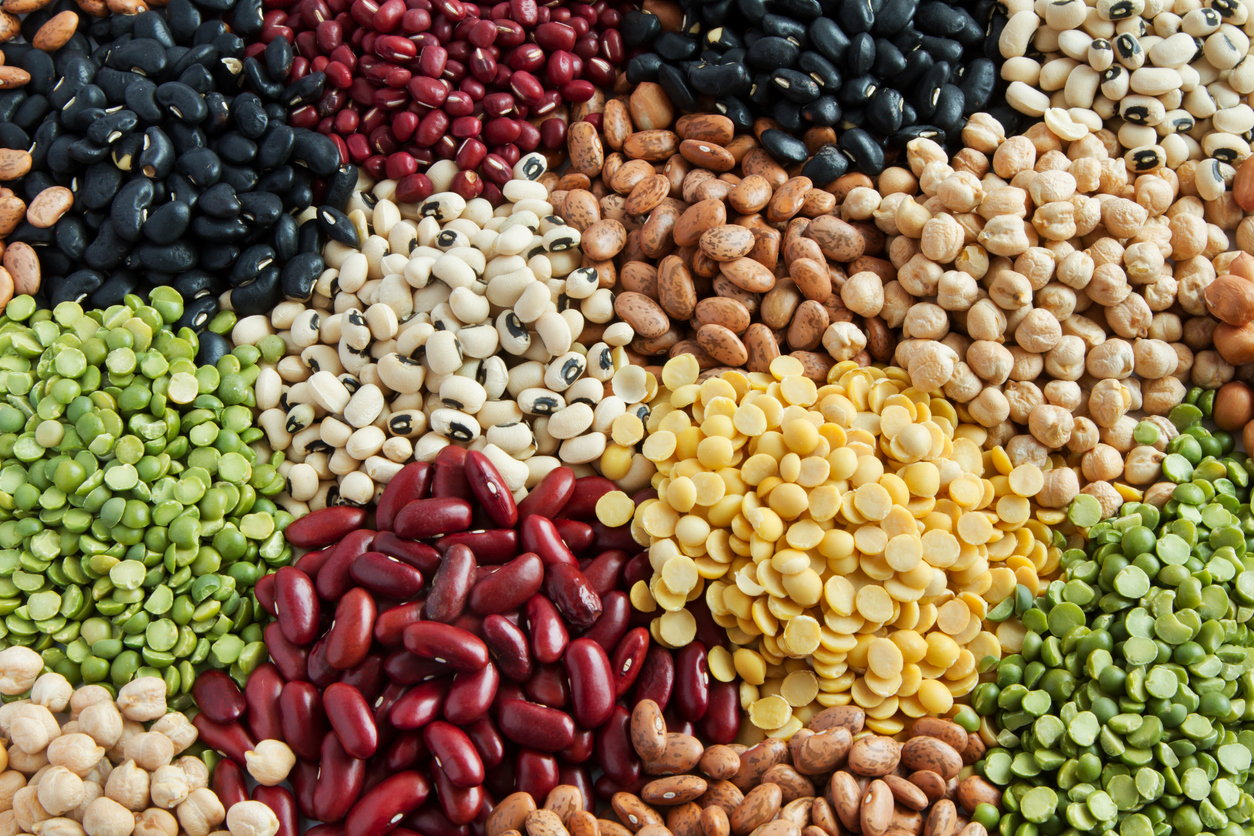Enhancing Agricultural Growth: Exploring the Growing of Cereals, Leguminous Crops, and Oil Seeds in Nigeria
Enhancing Agricultural Growth: Exploring the Growing of Cereals, Leguminous Crops, and Oil Seeds in Nigeria
Are you ready to dive into the vibrant world of agriculture and discover the key to enhancing agricultural growth in Nigeria? Join us on an exciting journey as we explore the vast potential of cereals, leguminous crops, and oil seeds. From unlocking sustainable farming techniques to maximizing yields, this blog post is packed with valuable insights that will revolutionize your approach to agriculture. Get ready to cultivate success and make a significant impact on Nigeria’s agrarian landscape. Let’s sow the seeds of progress together!
Introduction to Agricultural Growth in Nigeria
Introduction to Agricultural Growth in Nigeria:
Nigeria is a vast and diverse country located in West Africa, with a population of over 200 million people. Agriculture has been the mainstay of the Nigerian economy for centuries, providing employment and livelihoods for a large portion of its population. In recent years, there has been a significant increase in agricultural growth in Nigeria, making it one of the leading countries in agricultural production on the African continent.
The Nigerian government has recognized the importance of agriculture as a key driver for economic growth and poverty reduction. As such, it has implemented various policies and initiatives aimed at enhancing agricultural productivity and promoting sustainable development in this sector. The result is an increase in crop production that has not only improved food security but also contributed significantly to the country’s economic growth.
Cereals:
Cereals are among the essential crops grown in Nigeria, contributing significantly to both domestic consumption and export earnings. Cereal crops such as maize, rice, sorghum, and millet are widely cultivated across different regions of the country due to their adaptability to varying soil types and weather conditions.
Maize is one of the most important cereals grown in Nigeria with an estimated annual production of over 10 million metric tons. It is used mainly for human consumption but also serves as animal feed. The northern region of Nigeria is known for its high maize production due to favorable climatic conditions.
Overview of Cereal, Leguminous Crop, and Oil Seed Production in Nigeria
Overview of Cereal, Leguminous Crop, and Oil Seed Production in Nigeria
Nigeria, located in West Africa, is a country with a rapidly growing population and an increasing demand for food security. Agriculture plays a significant role in the country’s economy, employing over 36% of its workforce and contributing to about 20% of its Gross Domestic Product (GDP). Among the various agricultural products grown in Nigeria, cereals, leguminous crops, and oil seeds are essential commodities that have seen significant growth in recent years.
Cereals such as maize, sorghum, rice, wheat, millet, and barley are staple foods for Nigerians and contribute significantly to the country’s food supply. According to the Food and Agriculture Organization (FAO), Nigeria is the largest producer of maize in Africa and ranks among the top ten producers globally. The production of cereals has increased steadily over the years due to government support through policies such as providing subsidies on inputs like fertilizers and improved seeds. Additionally, technological advancements like irrigation systems have contributed to increased yields of cereals.
Importance of These Crops in Agriculture and the Economy
In recent years, there has been a growing recognition of the crucial role that cereals, leguminous crops, and oil seeds play in both agriculture and the economy of Nigeria. These crops are not only essential for food security, but they also contribute significantly to the country’s Gross Domestic Product (GDP) and provide livelihoods for millions of people.
One of the main reasons why these crops are so important is their high nutritional value. Cereals such as maize, rice, millet, and sorghum are staple foods for a large portion of Nigeria’s population. They are rich in carbohydrates, proteins, vitamins, and minerals that are necessary for maintaining a healthy diet. Leguminous crops like cowpea and soybean are also an important source of protein in many diets.
Moreover, these crops have a long shelf life when properly stored and can be used as raw materials in various food industries such as milling, brewing, baking, and livestock feed production. This makes them vital for sustaining food production chains and supporting rural economies.
In addition to their nutritional value, cereals, leguminous crops, and oil seeds also have significant economic importance. According to statistics from the Food and Agriculture Organization (FAO), these three crop categories collectively account for about 60% of Nigeria’s agricultural GDP. The cultivation of these crops provides employment opportunities for millions of small-scale farmers across the country.
Challenges Faced by Farmers in Growing These Crops
Growing cereals, leguminous crops, and oil seeds in Nigeria may seem like a lucrative venture, but it comes with its fair share of challenges. Farmers who choose to grow these crops face various obstacles that can hinder their success and affect the country’s agricultural growth as a whole.
One of the significant challenges faced by farmers in growing these crops is unpredictable weather patterns. Nigeria experiences two distinct seasons – the rainy season and the dry season. While this pattern may be suitable for some crops, it poses a challenge for others. Cereals such as maize and rice require adequate rainfall to thrive, while oil seeds like soybeans need less water and more sunlight. Unpredictable weather patterns can result in droughts or floods, which can significantly impact crop yields and lead to financial losses for farmers.
Another challenge faced by farmers is land availability and suitability. As one of Africa’s most populous countries, land resources are limited in Nigeria. Many small-scale farmers struggle to secure enough land to cultivate their crops adequately. Additionally, not all land is suitable for growing cereals, leguminous crops, or oil seeds due to factors such as soil quality or topography.
Role of Wigmore Trading in Supporting Agricultural Growth
The Role of Wigmore Trading in Supporting Agricultural Growth
Wigmore Trading is a leading agricultural trading company in Nigeria that has been playing a crucial role in supporting the growth of the country’s agricultural sector. The company’s core mission is to enhance food security and promote sustainable agriculture by providing farmers with high-quality seeds, fertilizers, and other essential inputs.
One of the key ways in which Wigmore Trading supports agricultural growth is through its focus on promoting the cultivation of cereals, leguminous crops, and oilseeds. These crops are vital for both food security and economic development in Nigeria.
Cereals such as maize, rice, sorghum, and millet are staple foods in Nigeria and are consumed by millions of people every day. By providing farmers with quality seeds, fertilizers, and technical support, Wigmore Trading helps to increase crop yields and improve the overall productivity of cereal farming in the country. This not only ensures food security but also contributes significantly to the economy as these crops are major sources of income for millions of small-scale farmers.
Success Stories from Farmers Working with Wigmore Trading
Success Stories from Farmers Working with Wigmore Trading:
At Wigmore Trading, we are committed to helping farmers in Nigeria enhance their agricultural growth and improve their livelihoods. Over the years, we have had the pleasure of working with numerous farmers who have not only achieved success in their crops, but also transformed their lives and communities through agriculture. Here are some inspiring success stories from farmers who have worked with Wigmore Trading.
1. Mr. Adeola Ogunmola – Maize Farmer:
Mr. Adeola Ogunmola is a maize farmer based in Oyo state, Nigeria. Before partnering with Wigmore Trading, he struggled to achieve high yields due to poor quality seeds and lack of access to modern farming techniques. However, after attending one of our training sessions on improved seed selection and crop management practices, Mr. Ogunmola saw a significant increase in his maize yield.
With the help of quality seeds provided by Wigmore Trading, as well as advice on how to properly space his plants and manage pests and diseases, Mr. Ogunmola was able to produce 30% more maize than previous years. This increase in yield has not only boosted his income but has also allowed him to provide for his family and send his children to school.
2. Mrs. Funmilayo Johnson – Soybean Farmer:
Mrs. Funmilayo Johnson is a soybean farmer from Kano state who had been struggling to make ends meet before partnering with Wigmore Trading. She used traditional farming methods and low-quality seeds, which resulted in poor yields and low profits.
After attending one of our training sessions on modern farming techniques and using improved soybean seeds from Wigmore Trading, Mrs. Johnson saw a dramatic increase in her yield. She was able to produce twice as much soybean as she did in previous years, which led to a significant increase in her income.
Mrs. Johnson now runs a successful soybean farm and has expanded her production to include other crops such as maize and rice. She has also become an advocate for modern farming practices in her community and encourages other farmers to work with Wigmore Trading for better results.
3. Mr. Bello Ahmed – Poultry Farmer:
Mr. Bello Ahmed is a poultry farmer based in Kaduna state, Nigeria. He had been struggling with high mortality rates among his chickens due to poor feed quality and lack of access to vaccines.
Through our partnership with a leading animal health company, Wigmore Trading was able to provide Mr. Ahmed with high-quality feed and vaccines for his chickens. With the help of these products, Mr. Ahmed saw a significant decrease in chicken mortality rates and an increase in egg production.
Best Practices for Successful Cereal, Leguminous Crop, and Oil Seed Production
Producing cereals, leguminous crops, and oil seeds can be a profitable venture for farmers in Nigeria. However, to ensure successful production and maximum yields, it is important to follow best practices that have been proven effective. In this section, we will discuss some of the key best practices for successful cereal, leguminous crop, and oil seed production.
1. Choose the Right Varieties:
The first step towards successful production is selecting the right varieties of cereals, leguminous crops, and oil seeds. It is essential to choose varieties that are suitable for the local climate and soil conditions in your area. These varieties should also have high yield potential and resistance to common pests and diseases.
2. Prepare the Land Properly:
Proper land preparation is crucial for achieving good yields. Before planting, it is important to clear the land of weeds and debris, plow or till the soil to a fine tilth, level the field if necessary, and add organic matter or fertilizers as needed. This helps create a favorable environment for seed germination and root growth.
3. Practice Crop Rotation:
Crop rotation involves growing different crops on the same piece of land over successive seasons. This helps improve soil fertility by replenishing nutrients used up by previous crops. It also helps control pests and diseases as different crops attract different types of pests.
4. Use Quality Seeds:
Using quality seeds is vital for attaining high yields in cereal, leguminous crop, and oil seed production.
Future Outlook and Potential for Growth in Nigeria
The future outlook for the agricultural sector in Nigeria is promising, with great potential for growth and development. As the largest economy in Africa, Nigeria has a strong agricultural base that contributes significantly to its GDP and employs a large portion of its population.
One of the key areas with immense potential for growth in Nigeria’s agriculture is the cultivation of cereals, leguminous crops, and oilseeds. These three types of crops are crucial for food security and have a high demand both domestically and internationally.
Cereals such as maize, rice, sorghum, and millet are staples in Nigerian diets and contribute significantly to the nation’s food supply. The country currently produces about 15 million metric tons of cereals annually but has the potential to increase this production with improved farming techniques and technology.
Leguminous crops like beans, cowpeas, soybeans, and groundnuts are also essential for both human consumption and livestock feed. With increasing global demand for plant-based protein sources, there is a significant opportunity for Nigeria to expand its production of legumes.
Oil seeds such as sesame seeds, sunflower seeds, and palm kernels have long been cultivated in Nigeria but mostly on small scales. However, these crops have great export potential due to their use in industries such as cosmetics and cooking oil production. By investing in modern farming methods such as irrigation systems and mechanization, there is an opportunity to increase yields and tap into international markets.








Comments are closed.